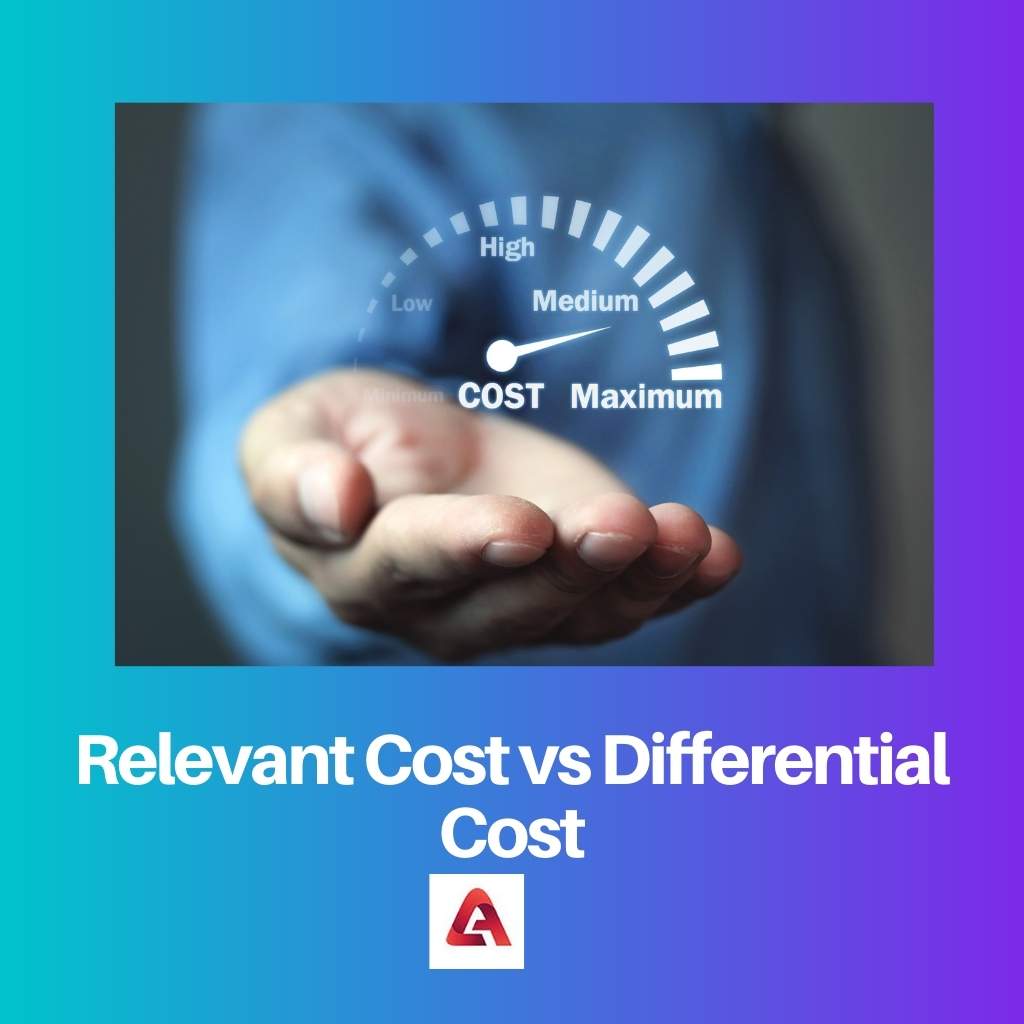In today’s market, we have to consult and make an informed decision regarding the entire business procedure, which also includes the financial aspects regarding the ideas we want to develop in the market.
Investment is a very crucial aspect for businesses, and hence to analyze such costs, they are assigned to two categories, namely relevant costs and differential costs.
Key Takeaways
- Relevant costs consider only costs directly tied to a decision, ignoring sunk and fixed costs.
- Differential costs focus on the difference between the costs of two choices.
- Managers use both relevant and differential costs to make informed business decisions.
Relevant Cost vs Differential Cost
The difference between relevant costs and the differential cost is that relevant costs are investments related to one particular project only, whereas differential costs are related to the differences in the various projects available. Relevant costs are seen as unwanted and avoidable investments regarding the particular project, and in differential costs, the investors go through the available range of business costs to select the ones they find more appealing.

Relevant Costs are costs that are attached to purchasing a project or additional investments which can be made in it. Businesses tend to consider such costs as undesirable as they try to make a separate adjustment to avoid paying for these costs.
Another reason for this is that such costs don’t make affect any other projects on which the business is working.
Differential Costs are costs that deal with the differences in the range of the costs from any number of projects.
In such cases, the company is looking into investing in a project or opportunity, and they have a range of options to look from, hence differential costs help them to find a favourable project and reject the unpopular options.
Comparison Table
| Parameters Of Comparison | Relevant Cost | Differential Cost |
|---|---|---|
| Definition | Those costs which are relevant to a particular project are known as relevant costs. | Those costs which include a difference of costs of a range of products are called differential costs. |
| Affect on Projects/Opportunities | They only affect the project to which they are related. | They are a range of differences between different projects and hence, affect those other projects to a certain degree. |
| Importance in Businesses | These costs are considered unwanted and avertable. The company has to look into several factors before investing in it. | These costs help the businesses make important decisions regarding the purchase of projects or opportunities from several options. |
| Decision taken for these costs | Generally, one simple decision is considered more than enough for relevant costs. | A lot of decisions are needed to take in collectively to approve for differential costs. |
| Occurrence of these costs | These costs take place during the working of a project. | These costs have to be considered before working on the project. |
What is Relevant Cost?
Relevant Costs are those costs that are only relative to the particular project from where it arises hence the term ‘relevant’.
As these costs only affect the particular project it is assigned to, their presence plays no importance whatsoever in the other businesses or opportunities the company is investing in.
The most general way to handle these costs is to look into the profits the company might be able to gain from paying them.
Whether it will affect the sales of their product or services or their promotion outcomes, and the problems the company might face for not investing in it.
Both the gain and the loss are important aspects for the growth of the company in the market, and relevant cost needs to have these inquiries cleared.
The most commonly asked question, ‘Is this change in the commodity truly worth investing?’ is raised due to which many times such costs are considered undesirable, and a cheap alternative tends to get used in its place and, at times, even avoided.

What is Differential Cost?
Differential costs are those costs that include the differences between a wide range of costs from several projects. For the company, differential costs are helpful as they provide a clear picture of which project or opportunity they want to invest in.
The investors go through all the options provided to them and choose the option that is the most suitable for them and reject all the other options present.
While making these choices, they have to consider the profit and loss margin applicable and many other factors regarding the sales of the commodity or service.
The differential costs affect many projects collectively hence, the company can use different differential costs and use it to determine investing in current differential costs.
Hence, the cost of one commodity can be used as an example to make better decisions for the current purchase.
It takes more than one decision to work with these costs as we also have to look at each level of production as well as the marginal costs which are made along with it and hence, have to be handled carefully.

Main Differences Between Relevant Cost and Differential Cost
- Relevant costs only affect those projects with which it is associated, and its presence does not affect any other project taken by the same company, whereas in differential costs.
- One simple decision is considered enough for relevant costs where, whereas multiple inquiries have to be answered before considering the differential costs.
- Relevant costs are considered unnecessary and avoidable where many times cheap supplements are used in their place, Differential costs are considered very valuable for the company as it helps it approve the project it wants to develop in the market.
- Relevant costs help businesses to determine whether they want to sell off the project or continue to make investments in it. Differential costs help the company to figure out which project they want to approve.
- Relevant costs occur during the work and differential costs occur before making the choice of purchasing a project.





